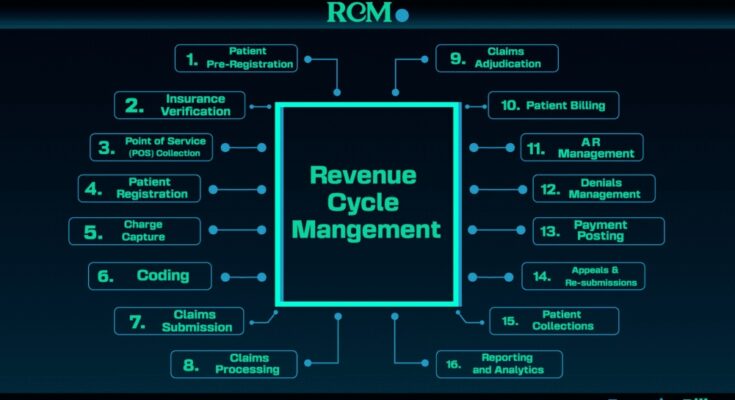Medical practices and organizations in the ever-changing healthcare sector need revenue cycle management (RCM). Overly complicated manual revenue cycle processes produced delays, errors, and inefficiencies. Internet apps make RCM more accurate, accessible, and efficient. Healthcare businesses can benefit from online charge capture revenue cycle management software’s ease and benefits.
Automation, Efficiency
Online RCM software streamlines and reduces human work. Appointment scheduling, insurance verification, coding, invoicing, and claims processing are faster with automation. Automation ensures accuracy and regulatory compliance by reducing manual data entry errors. Remove repetitious manual chores to improve healthcare efficiency and patient care.
Centralised Data Management
Centralized data management is a benefit of online RCM. All financial and medical records are stored in a secure database accessible online. This centralised design facilitates department and location collaboration for real-time data access. Remote access to patient records, claims, and financial performance improves operational flexibility and teamwork in healthcare.
Instant Analytics
Online RCM software’s advanced analytics and reporting display financial data and KPIs in real time. Healthcare managers can create bespoke reports to measure revenue, detect bottlenecks, and simplify operations. In real time, decision-makers can modify prices, negotiate with payers, or allocate resources to high-ROI regions. Data-driven insights improve healthcare efficiency and revenue.
EHR Integration
EHR and online RCM software often interact to provide patient care and financial management. Integration decreases transcription errors, guarantees patient-billing data consistency, and eliminates excess data entry. The RCM software interface lets doctors easily access patient diagnoses, treatment plans, and medical histories. This relationship speeds reimbursement cycles and cash flow by improving care coordination, billing accuracy, and claims processing.
Compliance and Regulation Support
Healthcare providers face challenges with compliance. Online RCM software with compliance and regulatory updates lessens this pressure. RCM software meets ICD-10 and HIPAA requirements. Automated notifications and reminders reduce audits, fines, and lost income by helping employees follow payer policy, coding standards, and documentation requirements.
Customization, Scalability
Online RCM software adapts to healthcare facilities. Regardless of medical practice or hospital network size, software solutions can scale up or down dependent on patients, transactions, and users. Customization enables companies customize the app to their procedures, tastes, and expertise. In varied practice settings and specialties, RCM software optimizes efficiency and income.
Patient Involvement and Satisfaction Increased
Good revenue cycle management affects patient satisfaction and funds. Online RCM software’s easy payment alternatives, realistic cost estimations, and transparent billing promote patient involvement. Patients can review their billing statements, insurance, and payment history online to avoid confusion.
Conclusion
Online revenue cycle management software changes healthcare administration. Automation, centralized data management, real-time analytics, and EHR connection make online RCM software the most efficient, accurate, and flexible. Compliance, scalability, and customization improve patient financial experiences, revenue capture, and operations in healthcare. Businesses need online RCM software to compete in the evolving, competitive, and complex healthcare market.




